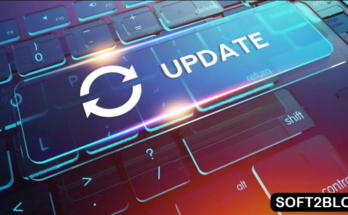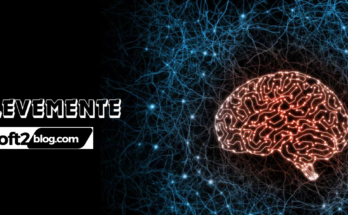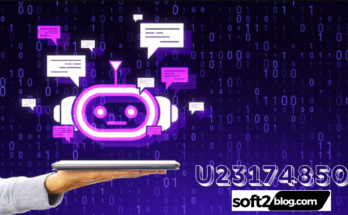Online platforms have become integral parts of modern society, facilitating communication, collaboration, and entertainment on a global scale. However, alongside the positive aspects, the digital world also harbors negativity, often manifested through various forms of online behavior. One such phenomenon that has gained attention in recent years is LRTSjerk, a term used to describe communities or individuals who engage in toxic, hostile, and often anonymous online behavior.
1. Introduction to LRTSjerk
LRTSjerk refers to a subset of online communities or individuals characterized by their penchant for negativity, hostility, and trolling behavior. The term is derived from the acronym “LRTS,” which stands for “Let’s Ruin This Subreddit,” and “jerk,” indicating the derogatory nature of their actions. These individuals often congregate in forums, social media platforms, or online communities with the intention of disrupting discussions, harassing users, and spreading toxicity.
2. Understanding Online Negativity
Definition of Online Negativity
Online negativity encompasses a range of behaviors aimed at causing harm, discomfort, or distress to others within the digital realm. This can include trolling, cyberbullying, hate speech, and other forms of hostile interactions.
Types of Online Negativity
Online negativity can manifest in various forms, including:
- Trolling: Deliberately provoking others to evoke emotional responses or disrupt discussions.
- Cyberbullying: Targeted harassment or intimidation using digital platforms.
- Hate Speech: Expressions of prejudice, discrimination, or hostility towards individuals or groups based on attributes such as race, gender, or religion.
3. The Emergence of LRTSjerk
Origin and Background
The origins of LRTSjerk can be traced back to the early days of online forums and message boards, where anonymity provided a veil of protection for users to engage in disruptive behavior without repercussions. Over time, these communities evolved into dedicated spaces for individuals who derive pleasure from causing chaos and spreading negativity.
Growth and Popularity
With the proliferation of social media and the internet’s democratization, LRTSjerk communities have grown in size and influence. Platforms such as Reddit, 4chan, and certain corners of Twitter have become hotbeds for LRTSjerk activity, attracting individuals seeking validation and camaraderie through shared disdain and hostility.
4. Characteristics of LRTSjerk
Anonymity and Pseudonymity
One of the defining characteristics of LRTSjerk communities is the emphasis on anonymity and pseudonymity. Users often adopt aliases or throwaway accounts to shield their real identities, allowing them to express themselves without fear of accountability or repercussions.
Hostility and Insults
LRTSjerk communities thrive on negativity, with members engaging in hostile behavior such as personal attacks, insults, and derogatory language. The goal is not constructive dialogue but rather to disrupt conversations and provoke emotional reactions from others.
Targeted Attacks and Harassment
Individuals within LRTSjerk communities may target specific users or groups for harassment, employing tactics such as doxxing (revealing personal information), swatting (falsely reporting incidents to law enforcement), or launching coordinated harassment campaigns.
5. Impact of LRTSjerk
Psychological Effects on Individuals
The presence of LRTSjerk communities can have profound psychological effects on their targets, leading to feelings of anxiety, depression, and social isolation. The constant barrage of negativity and harassment can erode self-esteem and confidence, affecting mental health and well-being.
Effects on Online Communities and Platforms
LRTSjerk behavior can also have detrimental effects on online communities and platforms, creating toxic environments that drive away users and stifle productive discourse. Platforms may struggle to maintain civility and enforce community guidelines in the face of coordinated trolling and harassment campaigns.
6. Management of LRTSjerk
Moderation and Regulation
Effective moderation and regulation are crucial for addressing LRTSjerk behavior and maintaining healthy online environments. Platforms must implement robust moderation tools, enforce community guidelines consistently, and swiftly address instances of harassment or abuse.
Countermeasures and Responses
In addition to proactive moderation, countermeasures such as content filtering, user blocking, and reporting mechanisms can help mitigate the impact of LRTSjerk behavior. Educating users about responsible online conduct and promoting positive interactions can also foster a culture of respect and civility.
7. Case Studies
Notable Incidents and Examples
Several high-profile incidents illustrate the destructive nature of LRTSjerk behavior, from targeted harassment campaigns against individuals to coordinated efforts to disrupt online communities and events.
8. Addressing LRTSjerk Culture
Promoting Positivity and Constructive Criticism
Combatting LRTSjerk culture requires a concerted effort to promote positivity, empathy, and constructive criticism online. Encouraging users to engage in meaningful dialogue, empathize with others, and focus on solutions rather than provocation can help shift the online discourse towards more productive interactions.
Building Resilience against Negativity
Empowering individuals and communities to build resilience against online negativity is essential for creating a healthier digital environment. This can involve educating users about digital literacy and critical thinking, providing resources for coping with online harassment, and fostering supportive online communities.
9. Conclusion
In conclusion, LRTSjerk represents a troubling aspect of online culture, characterized by anonymity, hostility, and negativity. Understanding the origins, characteristics, and impact of LRTSjerk behavior is essential for addressing its harmful effects and promoting a more positive and inclusive online environment.





